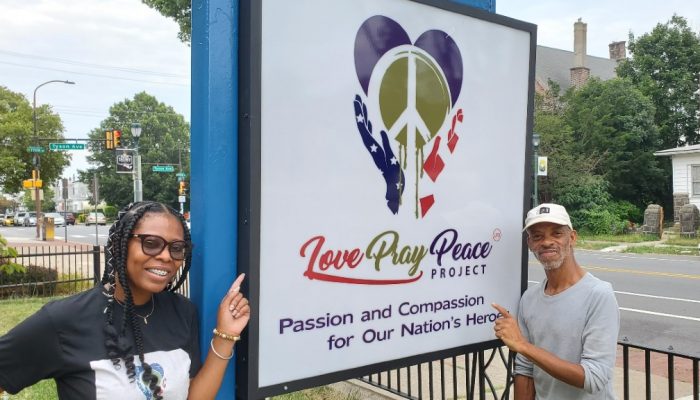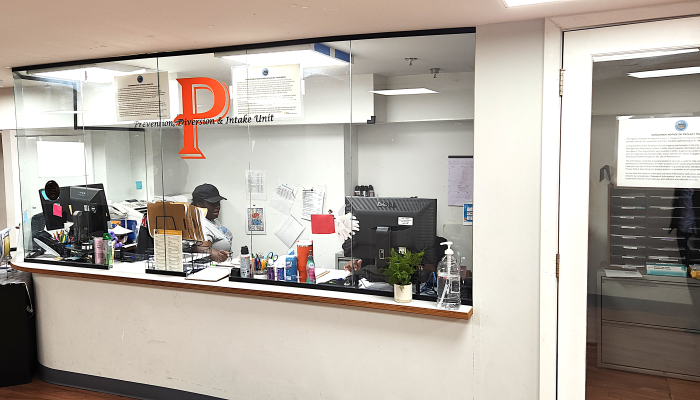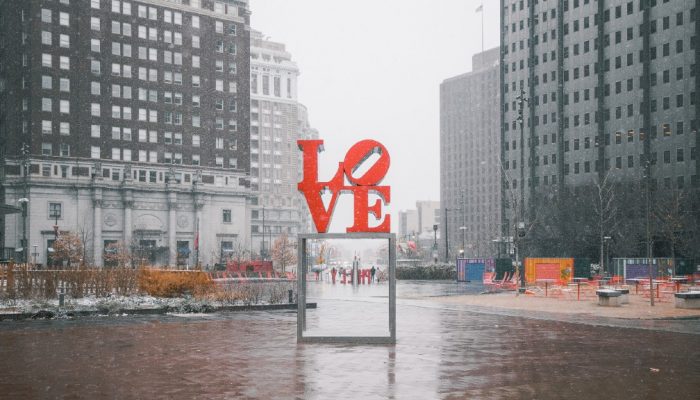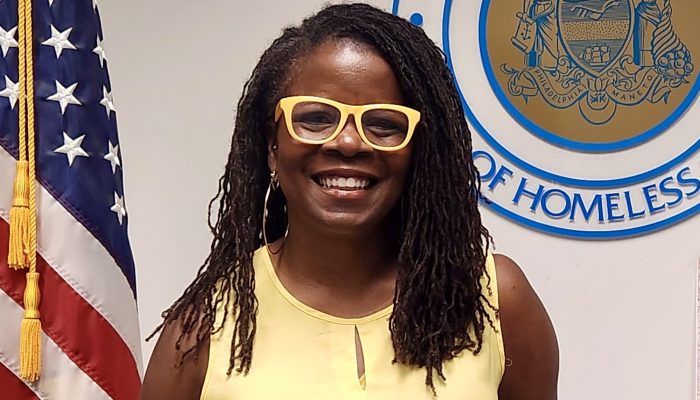As Philadelphia continues to grapple with an affordable housing crisis and homelessness, it’s essential to explore all options. One gaining traction among housing advocates, opinion makers, and city leaders are single-room occupancies (SROs), sometimes called co-living arrangements. In fact, City Council is considering a bill that would allow more SROs in Philly right now.
As the name suggests, each person living in SROs has their own room; a space where they can close a door and enjoy some privacy. People share a kitchen, bathrooms, and other living spaces. SROs stand in contrast to congregate settings, like most shelters, where many beds are arranged in one, open area. In the SROs operated by the Office of Homeless Services (OHS), we also offer residents meals and case management services. SROs are one of several non-congregate options that exist, and Philadelphia already has a few successful SRO examples.
During the pandemic, the high risk of COVID-19 infections in shelters sparked a renewed interest in SROs. Special funding from the federal government allowed OHS to expand the number of sites that offered people their own rooms. OHS focused on older adults and those with chronic underlying health conditions that made them most vulnerable to Covid.
One of the innovative new service providers who came to the table was Krissi Judd, founder and CEO of Love Pray Peace Project (LP3). Started as a nonprofit to serve military veterans, LP3 also runs two SROs. David Williams was one of the first people to enter the new LP3 SROs funded by OHS. Born and raised in Philadelphia, Mr. Williams is a U.S. Navy veteran.
We asked Mr. Williams and Ms. Judd to share their personal experience and insights on SROs.
Mr. Williams, where were you living before you joined the Love Pray Peace Project?
David Williams: Basically, I was homeless for four years. I was living with friends and family, kind of bouncing from pillar to post. When those things didn’t work out anymore, I entered the City shelter system. That’s when I went to the Center for Hope at 901 North Carlisle Street. I lived there for two years.
How did you find out you were moving out of the shelter?
David Williams: The case manager at Center for Hope was very, very diligent as far as helping me. She helped me through a lot of things, both physically and mentally. I was at a point when I was kind of losing faith in the future, and one day she came to see me, and said “You’re going to be leaving here” – just like that – and I figure I’m getting put out! But no, she’s like “You’re being placed somewhere else. I’ll tell you more about it, but start packing your stuff.” I was happy, but then again it was a new place, and I didn’t really know what to expect.
So how did it turn out?
David Williams: That sign outside, it says Love Pray Peace. From the time I rang the doorbell, and they opened the door, I felt each one of those things. I felt welcomed, I felt a sense of security: That this is where I was supposed to be. It wasn’t even a week later that I was able to meditate. Kind of relax and think things out, plan what I wanted to do next. Not worry, not stress, none of that. And the peace came over me.
Ms. Judd, what is better about SRO programs like this one?
Krissi Judd: You know, initially it was in response to the COVID-19 pandemic, so they didn’t want people comingled in rooms anyway. What we found is that it works better, because not only do they have a little more privacy, but their health issues are also better managed and maintained. We have a van that makes sure our participants get to their appointments. If the van is occupied, we call an Uber for them!
We also help them recover or request IDs and documents, which is very important for whatever comes next. To get an apartment you need those documents to sign a lease, and to participate in some housing programs, you need to verify your identity. So, for Mr. David, he’s a veteran, we have him in a veteran’s program now, but they needed his DD214, so things like that. We do help participants fill out applications, send them in, and we get documents mailed back here for them.
Customized care, individualized attention: It just makes a difference mentally and physically.
What are the program’s limitations?
Krissi Judd: Dealing with mental health. We’re not mental health specialists or therapists, some of us have a lot of experience, but it’s still challenging for staff members. We need to foster more relationships with mental health agencies because that is one of the biggest challenges.
Why aren’t there more SRO options in Philadelphia?
Krissi Judd: That’s easy! Because they’re more expensive to run. The congregate settings, they’re more economical: 20 people in one room. When you start going into single rooms, it costs a little bit more to run the operation. But we know that the benefits are worth the extra cost. This option really helps people out of homelessness, and it’s very much needed in our city.
Mr. Williams, you’ve since left the program. How long did you stay, and did it make a difference?
David Williams: I was here only for about a month, but this place turned my life around. It let me know there is light at the end of the tunnel if you’re willing to keep going, just keep going. You’re going to see that light, and just follow it. And I did. I hung in there, and it wasn’t easy. I had some obstacles and some steppingstones, but the end result is that today I have a beautiful apartment.
How do you feel today, and what do you hope for the future?
David Williams: I’m having fun, doing little things that I had almost forgotten how to do. Like going to Walmart, and shopping, and buying pots and pans. I’m having a ball! When I wake up in the morning, before I put my feet on the floor, I still get that good feeling. I lay there in bed, and I open my eyes and I say to myself “Yeah… you’re home.” That is just inspiring for me. It lets me know there is more, that I can do so much more.
Picture: Krissi Judd and David Williams




